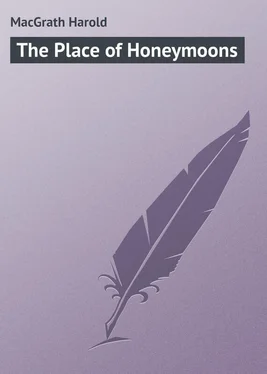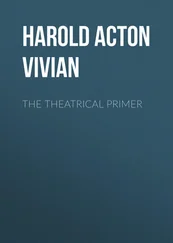Harold MacGrath - The Place of Honeymoons
Здесь есть возможность читать онлайн «Harold MacGrath - The Place of Honeymoons» — ознакомительный отрывок электронной книги совершенно бесплатно, а после прочтения отрывка купить полную версию. В некоторых случаях можно слушать аудио, скачать через торрент в формате fb2 и присутствует краткое содержание. Жанр: foreign_language, foreign_prose, на английском языке. Описание произведения, (предисловие) а так же отзывы посетителей доступны на портале библиотеки ЛибКат.
- Название:The Place of Honeymoons
- Автор:
- Жанр:
- Год:неизвестен
- ISBN:нет данных
- Рейтинг книги:5 / 5. Голосов: 1
-
Избранное:Добавить в избранное
- Отзывы:
-
Ваша оценка:
- 100
- 1
- 2
- 3
- 4
- 5
The Place of Honeymoons: краткое содержание, описание и аннотация
Предлагаем к чтению аннотацию, описание, краткое содержание или предисловие (зависит от того, что написал сам автор книги «The Place of Honeymoons»). Если вы не нашли необходимую информацию о книге — напишите в комментариях, мы постараемся отыскать её.
The Place of Honeymoons — читать онлайн ознакомительный отрывок
Ниже представлен текст книги, разбитый по страницам. Система сохранения места последней прочитанной страницы, позволяет с удобством читать онлайн бесплатно книгу «The Place of Honeymoons», без необходимости каждый раз заново искать на чём Вы остановились. Поставьте закладку, и сможете в любой момент перейти на страницу, на которой закончили чтение.
Интервал:
Закладка:
Would Monsieur like anything to eat?
No, the wine was sufficient.
Courtlandt poured out a second glass slowly. The wine bubbled up to the brim and overflowed. He had been looking at the glass with unseeing eyes. He set the bottle down impatiently. Fool! To have gone to Burma, simply to stand in the golden temple once more, in vain, to recall that other time: the starving kitten held tenderly in a woman’s arms, his own scurry among the booths to find the milk so peremptorily ordered, and the smile of thanks that had been his reward! He had run away when he should have hung on. He should have fought every inch of the way…
“Monsieur is lonely?”
A pretty young woman sat down before him in the vacant chair.
CHAPTER II
THERE IS A WOMAN?
Anger, curiosity, interest; these sensations blanketed one another quickly, leaving only interest, which was Courtlandt’s normal state of mind when he saw a pretty woman. It did not require very keen scrutiny on his part to arrive swiftly at the conclusion that this one was not quite in the picture. Her cheeks were not red with that redness which has a permanency of tone, neither waxing nor waning, abashed in daylight. Nor had her lips found their scarlet moisture from out the depths of certain little porcelain boxes. Decidedly she was out of place here, yet she evinced no embarrassment; she was cool, at ease. Courtlandt’s interest strengthened.
“Why do you think I am lonely, Mademoiselle?” he asked, without smiling.
“Oh, when one talks to one’s self, strikes the table, wastes good wine, the inference is but natural. So, Monsieur is lonely.”
Her lips and eyes, as grave and smileless as his own, puzzled him. An adventure? He looked at some of the other women. Those he could understand, but this one, no. At all times he was willing to smile, yet to draw her out he realized that he must preserve his gravity unbroken. The situation was not usual. His gaze came back to her.
“Is the comparison favorable to me?” she asked.
“It is. What is loneliness?” he demanded cynically.
“Ah, I could tell you,” she answered. “It is the longing to be with the one we love; it is the hate of the wicked things we have done; it is remorse.”
“That echoes of the Ambigu-Comique.” He leaned upon his arms. “What are you doing here?”
“I?”
“Yes. You do not talk like the other girls who come here.”
“Monsieur comes here frequently, then?”
“This is the first time in five years. I came here to-night because I wanted to be alone, because I did not wish to meet any one I knew. I have scowled at every girl in the room, and they have wisely left me alone. I haven’t scowled at you because I do not know what to make of you. That’s frankness. Now, you answer my question.”
“Would you spare me a glass of wine? I am thirsty.”
He struck his hands together, a bit of orientalism he had brought back with him. The observant waiter instantly came forward with a glass.
The young woman sipped the wine, gazing into the glass as she did so. “Perhaps a whim brought me here. But I repeat, Monsieur is lonely.”
“So lonely that I am almost tempted to put you into a taxicab and run away with you.”
She set down the glass.
“But I sha’n’t,” he added.
The spark of eagerness in her eyes was instantly curtained. “There is a woman?” tentatively.
“Is there not always a woman?”
“And she has disappointed Monsieur?” There was no marked sympathy in the tone.
“Since Eve, has that not been woman’s part in the human comedy?” He was almost certain that her lips became firmer. “Smile, if you wish. It is not prohibitory here.”
It was evident that the smile had been struggling for existence, for it endured to the fulness of half a minute. She had fine teeth. He scrutinized her more closely, and she bore it well. The forehead did not make for beauty; it was too broad and high, intellectual. Her eyes were splendid. There was nothing at all ordinary about her. His sense of puzzlement renewed itself and deepened. What did she want of him? There were other men, other vacant chairs.
“Monsieur is certain about the taxicab?”
“Absolutely.”
“Ah, it is to emulate Saint Anthony!”
“There are several saints of that name. To which do you refer?”
“Positively not to him of Padua.”
Courtlandt laughed. “No, I can not fancy myself being particularly concerned about bambini. No, my model is Noah.”
“Noah?” dubiously.
“Yes. At the time of the flood there was only one woman in the world.”
“I am afraid that your knowledge of that event is somewhat obscured. Still, I understand.”
She lifted the wine-glass again, and then he noticed her hand. It was large, white and strong; it was not the hand of a woman who dallied, who idled in primrose paths.
“Tell me, what is it you wish? You interest me, at a moment, too, when I do not want to be interested. Are you really in trouble? Is there anything I can do … barring the taxicab?”
She twirled the glass, uneasily. “I am not in actual need of assistance.”
“But you spoke peculiarly regarding loneliness.”
“Perhaps I like the melodrama. You spoke of the Ambigu-Comique.”
“You are on the stage?”
“Perhaps.”
“The Opera?”
“Again perhaps.”
He laughed once more, and drew his chair closer to the table.
“Monsieur in other moods must have a pleasant laughter.”
“I haven’t laughed from the heart in a very long time,” he said, returning to his former gravity, this time unassumed.
“And I have accomplished this amazing thing?”
“No. You followed me here. But from where?”
“Followed you?” The effort to give a mocking accent to her voice was a failure.
“Yes. The idea just occurred to me. There were other vacant chairs, and there was nothing inviting in my facial expression. Come, let me have the truth.”
“I have a friend who knows Flora Desimone.”
“Ah!” As if this information was a direct visitation of kindness from the gods. “Then you know where the Calabrian lives? Give me her address.”
There was a minute wrinkle above the unknown’s nose; the shadow of a frown. “She is very beautiful.”
“Bah! Did she send you after me? Give me her address. I have come all the way from Burma to see Flora Desimone.”
“To see her?” She unguardedly clothed the question with contempt, but she instantly forced a smile to neutralize the effect. Concerned with her own defined conclusions, she lost the fine ironic bitterness that was in the man’s voice.
“Aye, indeed, to see her! Beautiful as Venus, as alluring as Phryne, I want nothing so much as to see her, to look into her eyes, to hear her voice!”
“Is it jealousy? I hear the tragic note.” The certainty of her ground became as morass again. In his turn he was puzzling her.
“Tragedy? I am an American. We do not kill opera singers. We turn them over to the critics. I wish to see the beautiful Flora, to ask her a few questions. If she has sent you after me, her address, my dear young lady, her address.” His eyes burned.
“I am afraid.” And she was so. This wasn’t the tone of a man madly in love. It was wild anger.
“Afraid of what?”
“You.”
“I will give you a hundred francs.” He watched her closely and shrewdly.
Came the little wrinkle again, but this time urged in perplexity. “A hundred francs, for something I was sent to tell you?”
“And now refuse.”
“It is very generous. She has a heart of flint, Monsieur.”
“Well I know it. Perhaps now I have one of steel.”
“Many sparks do not make a fire. Do you know that your French is very good?”
Читать дальшеИнтервал:
Закладка:
Похожие книги на «The Place of Honeymoons»
Представляем Вашему вниманию похожие книги на «The Place of Honeymoons» списком для выбора. Мы отобрали схожую по названию и смыслу литературу в надежде предоставить читателям больше вариантов отыскать новые, интересные, ещё непрочитанные произведения.
Обсуждение, отзывы о книге «The Place of Honeymoons» и просто собственные мнения читателей. Оставьте ваши комментарии, напишите, что Вы думаете о произведении, его смысле или главных героях. Укажите что конкретно понравилось, а что нет, и почему Вы так считаете.












